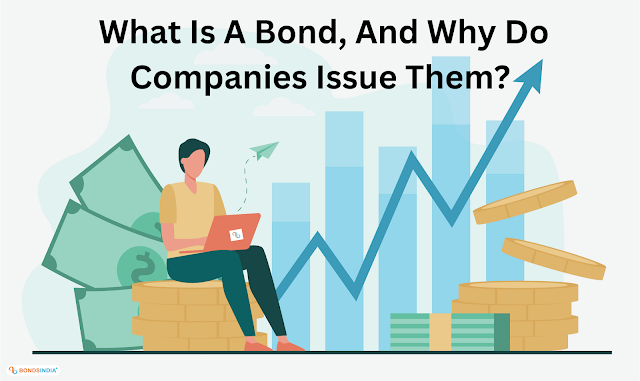What Is A Bond, And Why Do Companies Issue Them?
Companies issue bonds to raise money, and the most common use for this money is to fund projects, such as new equipment or expansion. You can also see bonds as an indication of how well a company's finances are doing.
What are bonds?
Bonds are debt securities that are issued by corporations and governments in order to raise capital. The issuer agrees to pay the holder of the bond a fixed rate of interest over a set period of time, and at the end of the term, the principal is repaid in full.
Bonds are an attractive investment for many reasons. They offer stability in terms of both interest payments and principal repayment, and they can be an excellent way to diversify a portfolio. Additionally, bonds can provide tax advantages in some cases.
However, it is important to remember that bonds are not without risk. Interest rates can rise, which will reduce the value of existing bonds. Additionally, if the issuer defaults on its obligations, bondholders may not get their money back.
A bond is a debt security, typically issued by corporations and governments, that pays periodic interest payments (known as coupons) and repays the face value of the bond at maturity. Bondholders are creditors of the issuing entity.
Bonds are used by companies to raise capital for expansion, acquisitions, or other purposes. By selling bonds, companies can receive funding without giving up equity in their business.
Governments also issue bonds to finance operations or projects. For example, bonds were used to finance the construction of the Hoover Dam.
Bonds are often referred to as fixed-income securities because they provide a regular stream of income (coupons) that is not dependent on the performance of the issuing entity.
The main risk for bondholders is credit risk, which is the risk that the issuer will not be able to make interest payments or repay the face value of the bond at maturity. Other risks include inflation risk, interest rate risk, and reinvestment risk.
Why do companies issue bonds?
Companies issue bonds for a variety of reasons, but the most common reason is to raise capital. By selling bonds, companies can raise money to finance new projects, expand their businesses, or cover operating expenses.
Bonds are also a way for companies to hedge against risk. By selling bonds, companies can transfer some of the risk of their business ventures to investors. This can make it easier for companies to obtain financing for risky projects.
Another reason companies issue bonds is to take advantage of the lower interest rates that are available on long-term debt. By issuing bonds with maturities of 10 years or more, companies can lock in low interest rates for the life of the bond. This can save companies a significant amount of money on interest payments over time.
How do companies make money from issuing bonds?
Bonds are a debt security, meaning that when a company issues a bond, it is essentially borrowing money from investors. The company agrees to pay back the borrowed funds, plus interest, at a later date.
Most bonds have a fixed interest rate, which means that the company will pay the same amount of interest each year for the life of the bond. The interest payments are made semi-annually, and the principal (the amount borrowed) is typically repaid at maturity, which is the date on which the bond expires.
So how does a company make money from issuing bonds? Well, it can use the borrowed funds for any number of purposes – to finance expansion, fund new projects, or even just cover day-to-day expenses. As long as the company uses the money wisely and is able to make its interest payments on time, it can stand to profit handsomely from issuing bonds. Of course, there is always some risk involved – if the company runs into financial trouble, it may not be able to repay its bonds, and investors could lose their money. But on the whole, bonds can be a great way for companies to raise capital without giving up equity in their business.
When should I buy or sell a bond?
When it comes to bonds, there are a few things to keep in mind in terms of when to buy or sell. First and foremost, it’s important to remember that bonds are interest-bearing securities, which means that there is a fixed interest rate that is paid out periodically (usually semi-annually). With this in mind, one of the main things to consider when buying or selling a bond is the current market interest rate. If the market interest rate is higher than the bond’s coupon rate, then it may be wise to sell the bond. Conversely, if the market interest rate is lower than the bond’s coupon rate, then it may be advantageous to buy the bond.
It’s also important to take into account the length of time until the bond matures. For example, if you purchase a ten-year bond and interest rates rise after five years, you may want to sell the bond before it matures since you can get a higher return on your investment by doing so. On the other hand, if you purchase a ten-year bond and interest rates fall after five years, you may want to hold onto the bond until it matures since you will then receive your principal investment plus any accrued interest.
Finally, it’s worth considering your overall investment goals when deciding whether to buy or sell a bond. For instance, if you need income right away, selling a bond may be the best option.
Who is responsible for paying bondholders?
If a company raises money by issuing bonds, the bondholders are the ones who lend the money to the company. The company is then responsible for repaying the bondholders with interest.
The terms of the bond will specify when and how the bondholder will be repaid. Typically, bonds are issued with a fixed interest rate and a fixed repayment schedule. The company will make periodic interest payments to the bondholders, and will repay the principal amount of the loan at maturity.
If the company defaults on its bonds, the bondholders may take legal action to recover their investment. In some cases, the bondholders may even be able to force the company into bankruptcy.
Conclusion
A bond is a fixed-income security that represents a loan from an investor to a borrower, typically a corporation or government. The borrower agrees to make periodic interest payments to the lender, and to repay the principal amount of the loan at maturity. Bonds are issued by companies in order to raise capital for various projects and expenses.
Bonds are an important part of the financial markets and provide investors with a safe and reliable way to earn income. For companies, issuing bonds is a cost-effective way to raise capital without having to give up equity in the company. If you're considering investing in bonds, it's important to understand how they work and what risks are involved.





Comments
Post a Comment